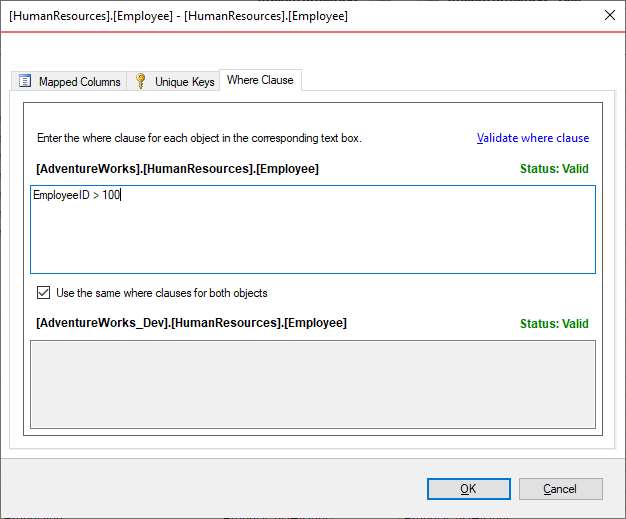For large tables the comparison operation may take time since all the rows from both sides will have to be read and compared. So, if you know for example that out of 10 million rows that 9 million of them are equal it would be very inefficient to compare those equal rows. Furthermore, regardless of how many rows may be different you might need to do a quick comparison of just a subset of rows, for example, only rows that were modified today.
IDERA SQL Data Compare allows you to set where clauses for each object being compared so that you can read and compare only the rows you need to. When defining a where clause by default the same filter will be applied to both tables in the pair, however, if you wish to define different filters for each of the tables you can un-check the Use the same where clause checkbox. We suggest you validate the data filters to ensure they have been defined correctly.
Do not write the "where" word on the clause box. Simply write the condition the way you would write it in T-SQL (see the screen shot below for an example).
IDERA | Products | Purchase | Support | Community | Resources | About Us | Legal
